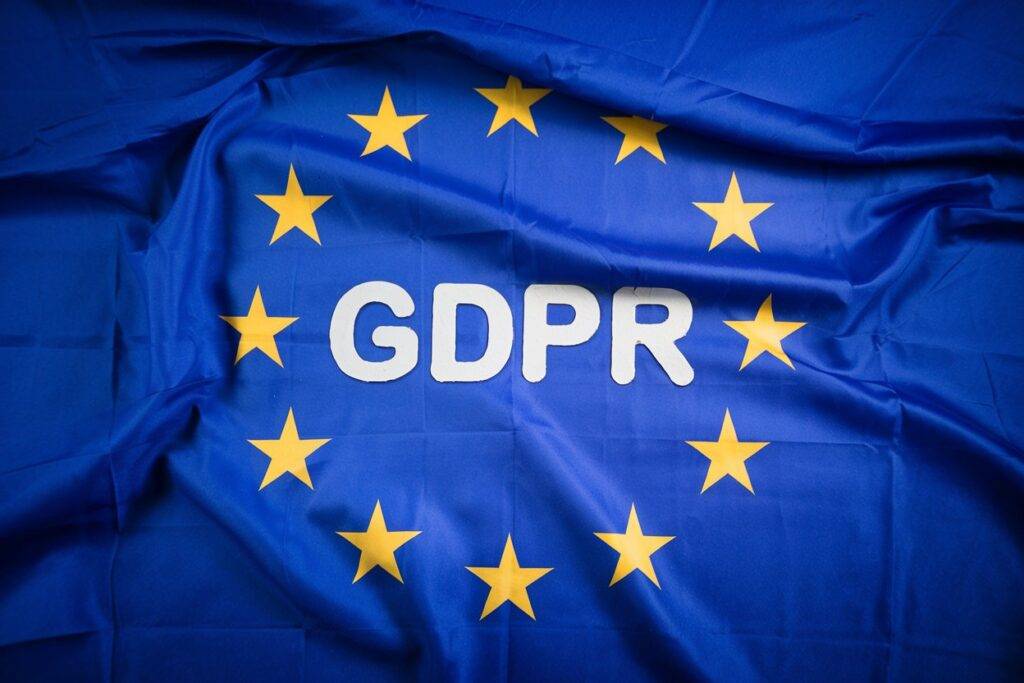Imagine you’re running a small online business from Chicago, selling handcrafted jewelry to customers worldwide. One morning, you receive an email from a customer in Paris requesting all the data you’ve collected about them. Your heart starts racing as you wonder if this European law really affects your American business.
Don’t worry – let’s explore exactly what GDPR means and why it matters to businesses everywhere.
What is GDPR in Simple Terms?
The General Data Protection Regulation (GDPR) is like a digital bill of rights for the internet age. Think of it as a strict but fair librarian who oversees how organizations collect, store, and use people’s personal information. Just as a librarian keeps track of who borrows which books and ensures they’re returned in good condition, GDPR ensures that personal data is handled responsibly and respectfully.
When it was introduced in 2018, GDPR fundamentally changed how organizations handle personal data. Instead of treating personal information as a resource to be freely collected and used, GDPR established that people own their personal data and have specific rights over how it’s used.
This shift in perspective is similar to how environmental regulations changed how we think about natural resources – from unlimited exploitation to responsible stewardship.
The Heart of GDPR: Key Concepts You Need to Know
Personal data under GDPR is broader than you might think. Imagine putting together a puzzle – each piece alone might not show the whole picture, but when combined with other pieces, it creates a complete image.
Similarly, personal data includes not just obvious identifiers like names and email addresses, but also:
- Direct identifiers: phone numbers, social security numbers, and physical addresses
- Digital footprints: IP addresses, cookie data, and device identifiers
- Professional information: job titles, work history, and business email addresses
- Behavioral data: browsing patterns, purchase history, and app usage
- Derived information: psychological profiles, preference predictions, and scoring systems
What makes GDPR unique is its emphasis on data protection by design. This means privacy isn’t an afterthought – it’s built into how organizations collect and use data from the very beginning. It’s like designing a house with security features already integrated, rather than adding locks and alarms after it’s built.
Who Does GDPR Apply To? Global Reach
GDPR’s influence extends far beyond Europe’s borders, much like how gravity affects everything within its field, regardless of origin. The regulation applies to three main categories:
- EU-Based Organizations: Any organization operating within the EU, regardless of where they process data
- Organizations Targeting EU Residents: If you sell products, provide services, or monitor behavior of EU residents, GDPR applies to you
- Organizations Processing EU Resident Data: Even if you’re not actively targeting EU customers, if you handle their personal data, you need to comply
For example, a small business in Australia selling handmade soaps through an online marketplace needs to comply with GDPR if they:
- Ship products to customers in the EU
- Use cookies to track website visitors from the EU
- Store email addresses of EU customers for marketing purposes
The geographical scope of GDPR covers:
- All 27 European Union member countries
- European Economic Area countries (Iceland, Liechtenstein, and Norway)
- Any territory where EU data protection law applies
But here’s what makes GDPR truly revolutionary: it follows the data, not the business. This means if you’re a company in Toronto collecting data from a customer in Berlin, you need to handle that data according to GDPR standards, even though you’re based outside the EU.
GDPR’s Global Impact: Similar Laws Around the World
GDPR has sparked a global privacy revolution, inspiring similar regulations worldwide. Let’s explore the equivalent laws in different regions:
United States
The U.S. has adopted a state-by-state approach to privacy regulation:
- California leads with the CCPA (California Consumer Privacy Act) and CPRA (California Privacy Rights Act)
- Virginia follows with the VCDPA (Virginia Consumer Data Protection Act)
- Colorado implemented the CPA (Colorado Privacy Act)
- Utah introduced the UCPA (Utah Consumer Privacy Act)
Asia-Pacific Region
Several countries have implemented their own comprehensive data protection laws:
- Japan: APPI (Act on Protection of Personal Information)
- China: PIPL (Personal Information Protection Law)
- Singapore: PDPA (Personal Data Protection Act)
- India: DPDPA (Digital Personal Data Protection Act)
Americas
Other American nations have also developed their frameworks:
- Brazil: LGPD (Lei Geral de Proteção de Dados)
- Canada: PIPEDA (Personal Information Protection and Electronic Documents Act)

Why GDPR Matters in Today’s Digital World
The importance of GDPR becomes clear when we consider how much of our lives now exists in digital form. Every time we browse websites, make online purchases, or use social media, we leave digital footprints.
GDPR ensures these footprints are protected and respected.
Consider these everyday scenarios where GDPR applies:
- When you sign up for a newsletter, the website must clearly explain how they’ll use your email address
- If you want to know what data a social media platform has about you, they must provide it
- When you no longer want a service to have your information, they must delete it upon request
These rights might seem obvious now, but before GDPR, many organizations treated personal data as their property rather than something borrowed from individuals who trust them with it.
The Impact of GDPR on Global Privacy Standards
GDPR’s influence can be seen in new privacy laws emerging worldwide, from California’s CCPA to China’s PIPL. This ripple effect shows how GDPR has changed our expectations about privacy and data protection.
Think of GDPR as the first domino that set off a chain reaction of privacy awareness and regulation. Its principles have become the gold standard for how organizations should handle personal data, emphasizing:
- Transparency in data collection and use
- Individual control over personal information
- Accountability for data protection
- Privacy as a fundamental right
Common GDPR Questions Answered
Does GDPR Apply to US Companies?
Yes, if you:
- Have an establishment in the EU
- Offer goods or services to EU residents
- Monitor the behavior of EU residents
Is GDPR Still Relevant in 2024?
Not only is GDPR still in effect, but its influence has grown stronger since its implementation in 2018. Consider these facts:
- The regulation has led to over €1.6 billion in fines by 2023
- It has become a model for privacy laws worldwide
- Major tech companies have transformed their global operations to comply
- Consumer awareness of data privacy rights has increased significantly
What Happens If You Don’t Comply?
The consequences of non-compliance can be severe:
- Fines up to €20 million or 4% of global annual revenue
- Damage to reputation and loss of customer trust
- Legal challenges and regulatory investigations
- Required changes to business practices
Why Understanding GDPR Matters to Everyone
Whether you’re a business owner, developer, or consumer, understanding GDPR helps you navigate our increasingly digital world more effectively. It’s not just about compliance – it’s about respecting people’s fundamental right to privacy and building trust in our digital interactions.
The next time you collect someone’s email address or track website analytics, remember: you’re not just handling data – you’re borrowing pieces of people’s digital identity. Treat it with the care and respect it deserves.

